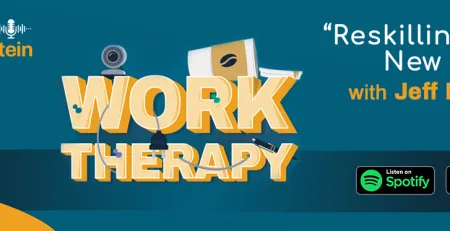Developing Emotional Intelligence to Boost Employee Wellness
Mental wellness is defined as “a state of mental well-being that enables people to cope with the stresses of life, realize their abilities, learn well and work well, and contribute to their community.”
Emotional Intelligence is defined as “a set of emotional and social skills that influence the way we perceive and express ourselves, develop and maintain social relationship, cope with challenges and use emotional information in an effective and meaningful way.”
Mental Wellness and Emotional Intelligence (EI) in the workplace have come into the spotlight in recent years and for obvious reasons, they are critically impactful to businesses and employees in the current world and its future. Oftentimes they are identified separately as they pertain to the overall well-being and happiness of employees at work, but for someone deeply entrenched in the world of EI and mental wellness, it is clear to see a potential opportunity to boost employee wellness programs through tools traditionally used for training and development.
Factors Impacting Mental Health at Work
According to the World Health Organization (WHO), mental health problems such as depression, anxiety, substance abuse and stress, are common – affecting individuals, their families, co-workers, and the broader community. In addition, they have a direct impact on workplaces through increased absenteeism, reduced productivity, and increased costs.
Mental health problems are the result of a complex interplay between biological, psychological, social, and environmental factors. There is increasing evidence that both the content and context of work can play a role in the development of mental health problems in the workplace.
Key factors include:
- workload (both excessive and insufficient work)
- lack of participation and control in the workplace
- monotonous or unpleasant tasks
- role ambiguity or conflict
- lack of recognition at work
- inequity
- poor interpersonal relationships
- poor working conditions
- poor leadership and communication
- conflicting home and work demands
How Can Emotional Intelligence Help?
There are many examples of protective factors for mental health at work including good social skills, sense of belonging, positive work climate, opportunities for success and recognition, and attachments and networks within the community to highlight a few. So how can EI help increase and improve these protective factors? Using the Emotional Quotient Inventory® (EQ-i 2.0®) model of emotional intelligence, we’ve drawn some interesting parallels for your consideration.
Good Social Skills
Social skills are a major contributing factor to the experience in the workplace for individuals. The ability to communicate effectively and non-offensively can be the difference between a highly toxic and combative environment and one where people value and understand one another and collaborate towards a shared vision of success.
EI Skills to Consider:
- Emotional Expression is openly expressing one’s feelings verbally and non-verbally.
- Empathy is recognizing, understanding, and appreciating how other people feel. Empathy involves being able to articulate your understanding of another’s perspective and behaving in a way that respects their feelings.
Sense of Belonging
Belonging is a perception of acceptance within a given group through purpose-driven actions for inclusion and shared values and goals. Fostering a sense of belonging at work can be approached through a variety of external factors and should also be considered at an individual level.
EI Skills to Consider:
- Self-Regard is respecting oneself while understanding and accepting one’s strengths and weaknesses. Self-regard is often associated with feelings of inner strengths and self-confidence.
- Reality Testing is the capacity to remain objective by seeing things as they really are. This capacity involves recognizing when emotions of personal bias can cause one to be less objective.
Positive Work Climate
A positive climate in the workplace encourages positive interactions and in doing so, creates a culture of trust and compassion. Positivity, in general, breeds more positivity, so this protective factor can and should start from the top down to impact the greatest number of people and foster mutual trust and satisfaction.
EI Skills to Consider:
- Optimism is an indicator of one’s positive attitude and outlook on life. It involves remaining hopeful and resilient despite occasional setbacks.
- Assertiveness involves communicating feelings, beliefs, and thoughts openly, and defending personal rights and values in a socially acceptable, non-offensive, and non-destructive manner.
- Independence is the ability to be self-directed and free from emotional dependency on others. Decision making, planning and daily tasks are completed autonomously.
Opportunities for Success and Recognition
It is no secret that providing ongoing opportunities for success and recognition to employees can boost productivity, motivation and retention and providing these opportunities is not always reliant on promotion or compensation. Employees want to be heard, receive feedback on performance and given the chance to provide constructive feedback to their peers and leaders too. The opportunities to do this extend beyond annual performance reviews, and should be part of a healthy, open dialogue between employees and leadership to ensure all parties are feeling fulfilled, challenged, and understood.
EI Skills to Consider:
- Emotional Expression is openly expressing one’s feeling’s verbally and non-verbally.
- Self-Actualization is the willingness to persistently try to improve oneself and engage in the pursuit of personally relevant and meaningful objectives that lead to a rich and enjoyable life.
Attachments and Networks Within the Community
The ability to develop beneficial and meaningful connections with others can be hugely impactful in combatting workplace stress through camaraderie, trust, and psychological safety with peers, colleagues, and superiors.
EI Skills to Consider:
- Interpersonal Relationships refers to the skill of developing and maintaining mutually satisfying relationships that are characterized by trust and compassion.
- Social Responsibility is willingly contributing to society, to one’s social groups, and generally to the welfare of others. Social Responsibility involves acting responsibly, having social consciousness, and showing concern for the greater community.
Final Thoughts
The information provided to you in this blog is not a one-size-fits-all approach to wellness, and should be considered as part of a larger, integrated plan for employee wellness that fits the needs your organization. Encouraging leadership, employees, and teams to develop their emotional intelligence through assessments, coaching and workshops is an excellent opportunity for the hybridization of traditionally siloed training and development programs and wellness initiatives in the workplace.
Learn more about the EQ-i 2.0.
Have questions? Get in touch with us.










